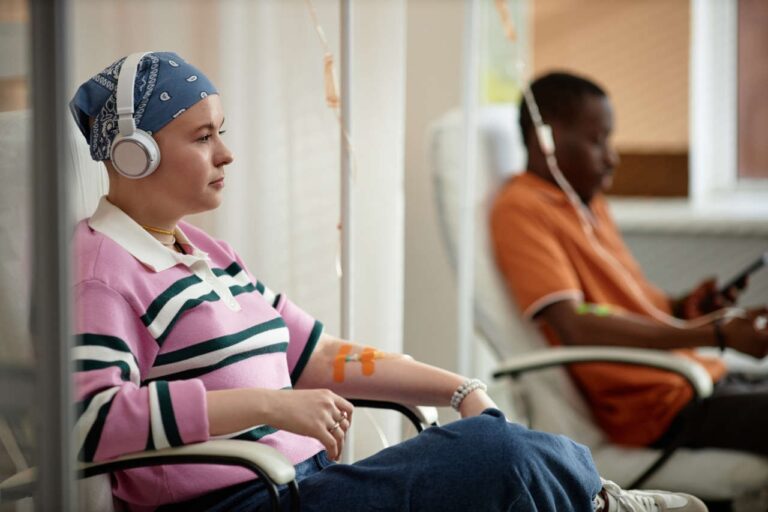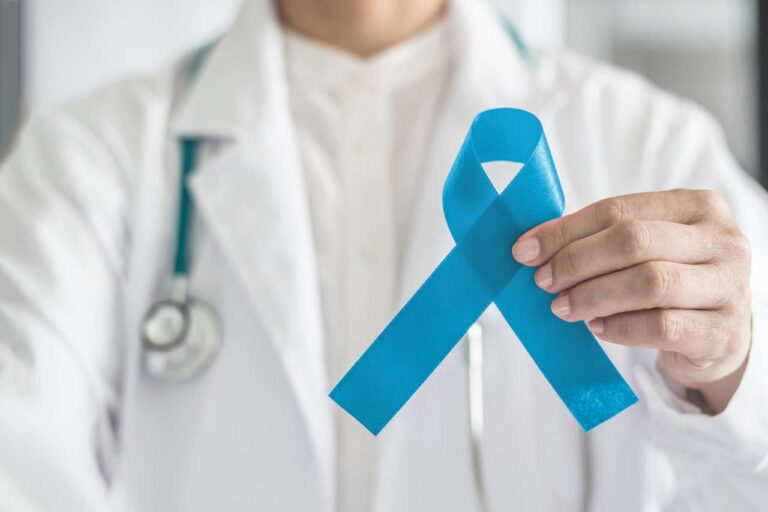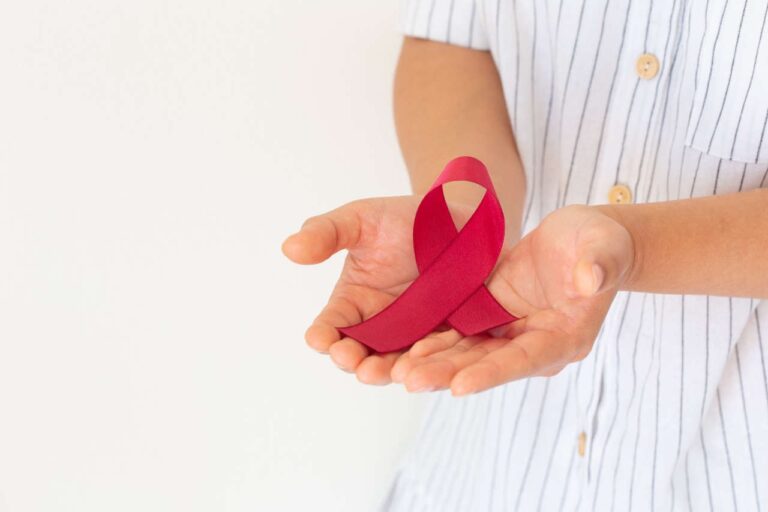
Stivarga (tên chung: regorafenib) là một loại thuốc được sử dụng để điều trị ung thư bằng cách ngăn chặn sự phát triển và lây lan của các tế bào ác tính trong cơ thể. Không giống như các loại thuốc điều trị ung thư khác, Stivarga điều trị nhiều loại ung thư khác nhau, bao gồm ung thư gan, ung thư đại trực tràng và một loại khối u hiếm gặp ảnh hưởng đến ruột, thực quản và dạ dày ở người. Mặc dù hiệu quả chống lại nhiều loại ung thư, thuốc này chỉ nên được sử dụng sau khi tất cả các phương pháp điều trị thay thế khác đã thất bại.
Thuốc Stivarga được dùng để điều trị bệnh gì?
Có ba loại ung thư chính có thể được điều trị bằng Stivarga:
Ung thư đại tràng
Ung thư đại trực tràng còn được gọi là ung thư ruột và trực tràng. Stivarga là một lựa chọn điều trị ung thư đại trực tràng hiệu quả, đặc biệt khi bệnh đã tiến triển sang các bộ phận khác của cơ thể. Tuy nhiên, trước khi sử dụng Stivarga, bệnh nhân phải trải qua các phương pháp điều trị khác, chẳng hạn như: hóa trị dựa trên các loại thuốc như fluoropyrimidine, cũng như liệu pháp điều trị kháng VEGF và kháng EGFR.
Ung thư biểu mô tế bào gan
Ung thư biểu mô tế bào gan (HCC) là một loại ung thư ảnh hưởng đến gan. Bệnh nhân nên thử sorafenib trước khi lựa chọn điều trị bằng Stivarga.
U mô đệm đường tiêu hóa (GIST)
GIST là loại ung thư hiếm gặp, thường ảnh hưởng đến dạ dày, ruột và họng. Stivarga là một lựa chọn điều trị cho GIST khi không thể phẫu thuật cắt bỏ hoặc đã di căn sang các bộ phận khác của cơ thể. Trước khi sử dụng Stivarga, bệnh nhân phải đã thử điều trị bằng sunitinib và imatinib.
Nó hoạt động thế nào?
Stivarga hoạt động thông qua tác dụng của hoạt chất regorafenib. Regorafenib là một chất ức chế protein kinase có nghĩa là chức năng của nó là ngăn chặn hoạt động của các enzyme chịu trách nhiệm phát triển nguồn cung cấp máu cho khối u.
Khi các enzyme này bị ức chế và nguồn cung cấp máu cho khối u bị gián đoạn, sự phát triển của các tế bào ung thư sẽ bị ức chế và chúng bắt đầu phân hủy. Nhờ đó, sự tăng trưởng, phát triển và lan rộng của chúng bị dừng lại, và bệnh nhân có thể bắt đầu cảm thấy dễ chịu hơn.
Hiệu quả và sự chấp thuận
Các cơ quan có thẩm quyền đã phê duyệt sử dụng Stivarga để điều trị các loại ung thư khác nhau dựa trên kết quả của các thử nghiệm lâm sàng và nghiên cứu được tiến hành để kiểm tra hiệu quả của thuốc.
Đối với ung thư đại trực tràng, một nghiên cứu đã được thực hiện trên 760 người tham gia không có dấu hiệu phục hồi sau các liệu pháp trước đó. Nghiên cứu này phát hiện ra rằng những người sử dụng Stivarga sống lâu hơn (trung bình 6,4 tháng) so với những người không sử dụng Stivarga.
Đối với GIST, 199 bệnh nhân đã tham gia thử nghiệm, cho thấy những bệnh nhân sử dụng Stivarga sống lâu hơn mà không làm tình trạng bệnh trở nên trầm trọng hơn. Trung bình, những bệnh nhân sử dụng Stivarga để điều trị GIST sống được 4,8 tháng, trong khi những bệnh nhân không dùng thuốc chỉ sống được 0,9 tháng.
Cuối cùng, 573 bệnh nhân đã được thử nghiệm để đánh giá hiệu quả của Stivarga trong điều trị HCC, và kết quả cho thấy khả năng sống lâu hơn khi sử dụng Stivarga để điều trị HCC so với khi không sử dụng. Trong thử nghiệm, những bệnh nhân sử dụng Stivarga sống được 10,6 tháng, trong khi những bệnh nhân không sử dụng chỉ sống được 7,8 tháng.
Quản lý thuốc và liều dùng
Một bác sĩ có đủ kinh nghiệm điều trị ung thư, đặc biệt là các loại ung thư đã đề cập ở trên, nên giám sát việc sử dụng Stivarga. Cách duy nhất để mua thuốc là phải có đơn thuốc.
Dạng thuốc phổ biến nhất của Stivarga là viên nén. Mỗi viên nén có hàm lượng 40 mg và được dùng trong một liệu trình điều trị 4 tuần.
Liều khuyến cáo đầu tiên là 160 mg: bốn viên 40 mg, uống một lần mỗi ngày trong ba tuần. Sau đó, ngừng thuốc trong một tuần. Thuốc được uống hàng ngày với một bữa ăn nhẹ, ít chất béo, ít calo, cùng với nước.
Nếu bạn quên một liều, hãy uống ngay khi nhớ ra. Tuy nhiên, nếu gần đến giờ uống liều tiếp theo, hãy hủy liều đã quên và chỉ uống liều tiếp theo. Tuyệt đối không được uống hai liều cùng một lúc. Nếu bị quá liều, hãy liên hệ ngay với bác sĩ hoặc cơ sở y tế.
Thận trọng khi dùng Stivarga

Thuốc nên được sử dụng cho đến khi bệnh nhân tiếp tục nhận được hiệu quả điều trị hoặc cho đến khi các tác dụng phụ trở nên quá nghiêm trọng. Có thể giảm liều hoặc ngừng hẳn nếu một số tác dụng phụ bắt đầu xuất hiện. Trong quá trình điều trị, cần kiểm tra chức năng gan và huyết áp thường xuyên.
Stivarga có thể ảnh hưởng đến quá trình lành vết thương, bao gồm cả vết mổ. Hãy thông báo ngay cho bác sĩ nếu bạn cần phẫu thuật. Ngoài ra, hãy ngừng dùng thuốc hai tuần trước khi phẫu thuật để đảm bảo an toàn.
Hoạt chất regorafenib có thể tương tác với bưởi, gây ra các tác dụng phụ nghiêm trọng; do đó, tránh ăn bưởi hoặc nước ép bưởi khi đang dùng thuốc này. Ngoài ra, tránh sử dụng các loại thực phẩm chức năng có chứa: Cây ban Âu.
Cuối cùng, bảo quản thuốc ở nơi sạch sẽ, tránh ẩm và nhiệt, và đảm bảo thuốc vẫn còn trong bao bì gốc. Nếu phải thay thuốc, hãy đảm bảo thuốc được đựng trong hộp có chất bảo quản hút ẩm. Vứt bỏ phần Stivarga chưa sử dụng sau bảy tuần kể từ khi mở lọ.
Tác dụng phụ của Stivarga
Một số tác dụng phụ mà bạn có thể lưu ý khi sử dụng Stivarga bao gồm:
- Đau đầu và thay đổi trạng thái tinh thần
- Các vấn đề về tim
- Dấu hiệu nhiễm trùng
- Tăng huyết áp
- Chảy máu nghiêm trọng
- Đục lỗ
- Phản ứng da tay chân và phát ban da nghiêm trọng
- Các vấn đề về gan như vàng da hoặc nước tiểu sẫm màu như nước trà
- Các vấn đề về chữa lành vết thương
Bạn nên đi khám bác sĩ ngay lập tức nếu nhận thấy bất kỳ tác dụng phụ nào sau đây.
Trị giá
Chi phí mua sỉ cho một viên Stivarga 40 mg là $21.546 cho 84 viên. Đây chỉ là ước tính vì một số biến số, bao gồm địa điểm, bảo hiểm, chương trình chăm sóc sức khỏe và nhà thuốc, sẽ ảnh hưởng đến chi phí thực tế của thuốc.












